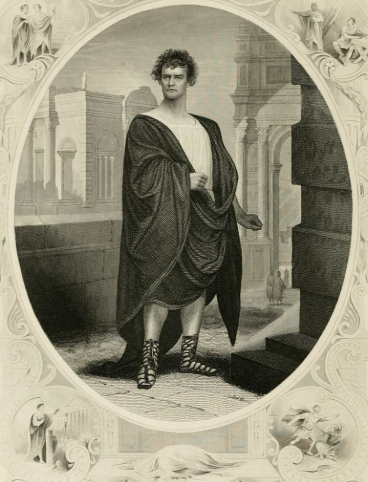What Amherst’s Secular Chapel Sessions Mean to Me

Earlier this semester, Jen Manion, professor of history, and Michael Kunichika, professor of Russian, struck up a conversation about Serena Williams’ recent performance at the U.S. Open. “During our conversation, I realized that I have so much to say about Serena Williams,” Manion said. “And then I thought, ‘Why don’t I have a place to talk about Serena Williams?’”
From this brief conversation arose an idea for a new community-building event, which the two called Secular Chapel. It would be a space where people could congregate and reflect on Serena Williams and her accomplishments, with the intent to expand into new topics of exploration and reflection in future gatherings.
They titled the first event “What Serena Williams Means To Me,” and started inviting members of the Amherst community, including President Biddy Martin. “We were thinking [during our planning] about where to host this and I was like, ‘Can we reserve Johnson Chapel? Is that even reservable?’” Manion said.
Ultimately, everything came together, and on Sunday, Sept. 8, the first-ever Secular Chapel took place in Johnson Chapel. Although email invitations were sent out to different people on campus and included in the Daily Mammoth, turnout was relatively small.
The few students who did attend, however, said they enjoyed the event. One of those students was Nicole Chung ’22, who saw the announcement in the campus newsletter and thought it would be interesting to hear about Williams. “It was very relaxed, just a conversation between the two of them [Kunichika and Manion] about Serena Williams and what she meant to them,” said Chung. She added that she appreciated that Secular Chapel had a communal feeling without seeming too religious.
Walking this line between talking about an individual and deifying them was one of the main focuses of the organizers. “Secular Chapel is supposed to be deeply humanizing without mythologizing,” said Kunichika.
This was something that was especially important at the second meeting, which focused on Ruth Bader Ginsburg in preparation for the Supreme Court justice’s visit to campus. For many people, the justice’s ascent into “the Notorious RBG” became a point of reflection and consideration, while others talked about the country’s obsession with the justice’s physical health as an example of the larger-than-life persona she has become among people on the political left.
One of the most important parts of Secular Chapel is the focus on individual reflection; the question is not “Who is Serena Williams?” or “Who is Ruth Bader Ginsburg?” but rather, “Who are they to me?” To Kunichika, “Our fundamental question is ‘how can someone be meaningful to people in so many different ways?’ and we are interested in parsing out how people and things acquire meaning to us. For RBG, it was amazing to see how each person there brought up a different facet of who she is and what she means, and taken together, we have a broader understanding of her role in our lives.”
It’s here where Secular Chapel has the most impact. It’s made me feel closer and more connected with the other members of the Amherst community in attendance. Although the discussions are centered around an individual, there are so many ways in which that one individual can be important to so many others. A conversation broadly about Williams can easily become a conversation about her abilities as an athlete, about the role of sports in America, about the media coverage of black athletes or about the way we talk about female athletes and their decisions to have children. To everyone in the audience, Williams meant something different, and their answers were a reflection of who they are and what is important to them. These perspectives are often different from our own, and by listening to them we can better empathize with one another and start to understand our community better.
Importantly, Secular Chapel is a place where none of this feels forced. While the conversation touches on serious topics like race, gender, religion and class, it does so in a way that feels accessible and natural. Speaking about sexism in the workplace by talking about RBG provides a real-life example of the adversity women face, while also uplifting the story of someone who has come so far despite it.
Secular Chapel has the unique ability to make these weighty conversations and concerns fun. A catered reception inside Johnson Chapel follows every meeting with the opportunity to mingle and follow up on the ideas discussed earlier. There’s also always singing under the supervision of Secular Chapel choir director and Law, Jurisprudence and Social Thought Professor Martha Umphrey. Manion laughingly explained, “We actually spent the most time picking songs for the first event.”
“Singing together makes the event something more than just being in the same space together,” said Umphrey. “You’re engaging in a project. You might not know all the words, but you’re still generating a sense of belonging that’s necessary for something like Secular Chapel.” Her selection for the first meeting was the Rolling Stones’ “You Can’t Always Get What You Want,” inspired by Williams’ recent loss at the U.S. Open, while the second meeting’s song was Elton John’s “I’m Still Standing” in reference to RBG’s steadfast persistence.
For Manion, the bottom line is about building community. “It’s so important to come together and reflect. [At Secular Chapel] we’re just being together and talking about something that matters.” After a divisive spring semester and with Amherst looking for ways to improve the sense of belonging on campus, I think that Secular Chapel’s focus on community building is desperately needed. Although Secular Chapel’s approach to community building is a little unorthodox, I find that it avoids a lot of the awkwardness usually associated with community building exercises. Sitting with a group of people and reflecting on why someone matters to us gives us the opportunity to think about ourselves and what we value, while also learning more about what matters to our peers. It allows us to find out what we have in common, and more importantly, to learn where we differ and how in a laid back and enjoyable environment.
The more people who attend, the more valuable it is, so I encourage everyone to attend the final session of Secular Chapel at noon on Sunday, Nov. 10.




Comments ()